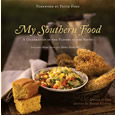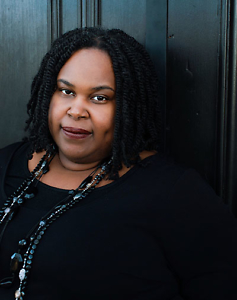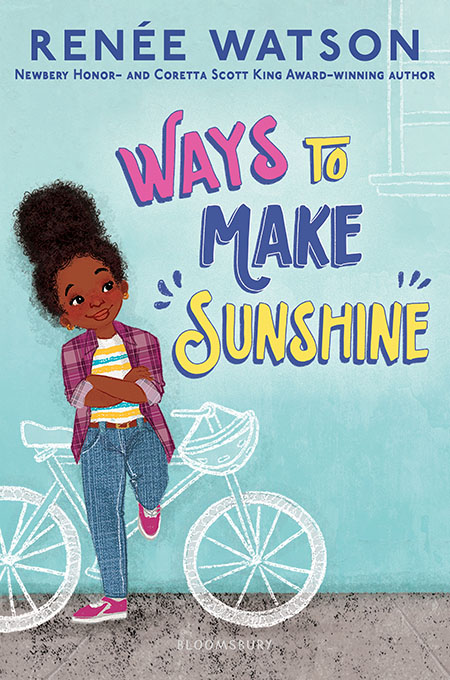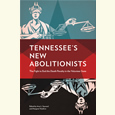The Literary Majesty of the King James
Bobby C. Rogers talks about learning to be a poet while wearing a clip-on tie
Bobby Rogers’s debut collection of poems harnesses much of its power through the contraries it explores: realism and idealism, bitterness and hope, knowledge and mystery. Articulate, precise, and intense, Paper Anniversary delivers poem after poem that, in the words of the author, provide “a certain kind of attention and a desire to make sense of what it reveals.”
A professor of English and Writer-in-Residence at Union University, Bobby C. Rogers lives in Memphis. Paper Anniversary received the prestigious 2009 Agnes Lynch Starrett Poetry Prize from the University of Pittsburgh Press. His poems have also appeared in The Southern Review, the Georgia Review, Shenandoah, and Poetry Daily, among many other journals. Rogers has won a Greensboro Review Literary Prize and has earned three Pushcart nominations. He recently answered questions from Chapter 16 via email, in preparation for his appearance at the University of Tennessee in Knoxville on April 4.
Chapter 16: First, congratulations on winning the Agnes Lynch Starrett Poetry Prize. That is quite an honor. How long did it take to write this collection? And what were some challenges while writing that ended up being fruitful to the work as a whole?
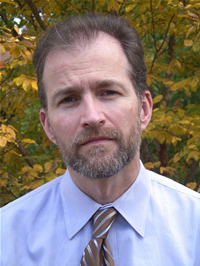 Rogers: It took a long, long time. The poems were written over a period of fifteen years or more. I’m fortunate that my university strongly supports writing and research but, at the same time, isn’t a publish-or-perish institution. I had the luxury of being able to continually rework and polish the book, and I had the luxury of being selective in where I sent the manuscript. It’s a gift not to have to let go of a book before it’s ready.
Rogers: It took a long, long time. The poems were written over a period of fifteen years or more. I’m fortunate that my university strongly supports writing and research but, at the same time, isn’t a publish-or-perish institution. I had the luxury of being able to continually rework and polish the book, and I had the luxury of being selective in where I sent the manuscript. It’s a gift not to have to let go of a book before it’s ready.
Chapter 16: I see a few thematic and stylistic concerns that create a wonderfully cohesive collection. One, the uniformity of the line—a long line that I’ll come back to later—is featured in every poem. And two, the subject matter focuses on the present landscape—a meat-and-three, a broken-into car trunk, yard hydrangeas—and then enters into lyrical reflections that travel beyond the physical present. How would you, however, describe what unites this collection of poems?
Rogers: I was very concerned with the book’s cohesiveness, even though it’s just a collection of poems and not one of those “concept album” books where all the poems are written in the voice of Mary Cassatt’s sous-chef or set during the Great Potato Famine or arranged according to the signs of the Mayan zodiac.
I’m being unforgivably flippant. Some of my favorite books are sequences of that sort, The Bridge, say, or Roethke’s greenhouse poems, or Ellen Bryant Voigt’s Kyrie, and I’m jealous of their continuity, how each poem avails itself of the power of the larger construction. If there’s anything that unifies my book, it’s a certain kind of attention and a desire to make sense of what it reveals. And then, as you say, there are the structural consistencies.
Chapter 16: Could you talk about those “structural consistencies”? I think we are both referring to your long line here. Most poems feature a line stretching from one margin to the next. This tradition goes back to the King James version of the Old Testament, specifically the Psalms. William Blake also used the long line well, and so did Walt Whitman, of course. A few contemporary poets who use it well include C.K. Williams, Marie Howe, and Charles Wright. What is your sense of the line and its prosody?
Rogers: I studied with Charles Wright at Virginia, and, as you might expect, he’s had a large influence on my work. So have most of the other folks you mention. I am among the last of the Southern poets to come by the majesty of the King James Bible honestly—that is to say, as a child sitting in an uncomfortable oaken pew Sunday after sultry Sunday. While wearing a clip-on tie. Back then, even the deacons without a high school diploma would utter prayers of their own composition that recreated the Elizabethan cadences of the King James, complete with thees and thous.
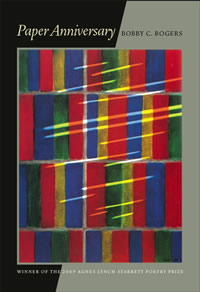 Nowadays in rural churches it seems it’s all New International Version all the time. I’m not the one to say whether or not this development is good for the congregants’ souls, but I’m pretty sure it hasn’t done a whole lot for anybody’s writing. From birth, I’ve had the scriptures read at me, and, you’re right, the Hebrew scriptures continue to influence how my words gather across the page.
Nowadays in rural churches it seems it’s all New International Version all the time. I’m not the one to say whether or not this development is good for the congregants’ souls, but I’m pretty sure it hasn’t done a whole lot for anybody’s writing. From birth, I’ve had the scriptures read at me, and, you’re right, the Hebrew scriptures continue to influence how my words gather across the page.
In Paper Anniversary, I wanted my line to be as long and content-rich as possible and still have enjambment retain its ability to surprise and mean. Whitman with enjambment. Not a bad goal. Dickinson freed of Common Measure. We’re lucky with our poetic forebears in this country, aren’t we? But the most important and inescapable influence I’ve had is the voices of family I’ve heard growing up, telling stories on the porch or after a meal with the sweet smell of Turkish tobacco from a Camel cigarette hanging in the air, sometimes the same story we’d heard over and over for years, decades even, voices seeking to hand something on, to be listened to, to be acknowledged.
It’s not always lying when we tell an old story, but even when it is, there’s a faithfulness to keeping the act of telling alive, a faithfulness to something beyond the facts, to something truer than the truth. It was a blood sport, actually. You had to earn your floor time on that porch. No one wanted to listen to a flat story. The long poetic line I’m working in right now seems to be the best way score the stories that I’ve been given to tell and earn my piece of time telling them.
Chapter 16: How do you decide when to break the line?
Rogers: I try not to break them. I’ve come to view the line as a void that I have to struggle to fill, a form that preexists whatever words I might dream up to populate it. Rather than taking a mile and a half of prose and chopping it up, I try to expand a line from its interior to its edges. When I’m revising, I trust the line more than anything else. If the words reside honorably in the line, that’s strong evidence for me that they must have a reason for being there. Those are the words that survive into the next draft.
Chapter 16: The Psalms are often divided into two main types: laments and hymns. Which category would you place your poems?
Rogers: Robert Alter will tell you that categorizing the psalms is problematic at best, but I’ve been unable to get away from them, from their narrative arc, their directness and simplicity of expression, their bitterness and celebratory hope, their blues-like qualities and their formality, their anger with God and their absolute dependence on something beyond their own competence. I hope there’s a praiseful note in even my bitterest lament.
Chapter 16: One of the poems in this collection—“The Creative Process”—serves as an ars poetica, suggesting how a poem can serve as an extension of our memories, a way to stave off transience and impermanence. Could you talk about some of your thoughts regarding this poem?
Rogers: You make do with what you have. Sometime I sense in my students—and I used to detect it in myself—that they are dissatisfied with their world, that they distrust it and long for more exotic surroundings, cities with name recognition and events that are more compelling and poem-worthy to dress up their days. They haven’t yet fully come to believe that a parking lot in Jackson, Tennessee, where they’ve just slammed the car door and slung a book bag up to their shoulder, where the afternoon light throws the outline of every bumper onto the veiny asphalt in some crazy and rhythmed way, where they’re late and lonely and hungry and not as prepared as they’d like to be, can have anything at all to do with art. The sooner we all get over that the better.
Chapter 16: Finally, what are some exciting trends you are seeing in contemporary poetry right now?
Rogers: Living in Memphis frees you from having to keep up with all the exciting trends, but it’s no problem at all keeping up with the work of the poets I love, and finding new ones. We live in a time of great poetry. Charles Wright and Adrienne Rich and Philip Levine still walk the earth and write poems. So many great poets to devour: Andrew Hudgins, Mark Doty, B.H. Fairchild, Claudia Emerson, James Tate’s prose poems, Louise Glück, and on and on. Tennessee is full of good poets: Marilyn Kallet, Mark Jarman, Kate Daniels, Bill Brown, John Bensko, Jeff Hardin—and those are just a few of the ones I count as personal friends. So many good new books being published by Pitt and Carnegie Mellon and LSU, by Graywolf and BOA and Red Hen. I have no patience with the voices that bemoan the state of poetry and say it’s dead or doesn’t matter. I pity them. To say poetry is dead is an admission of illiteracy.
Bobby C. Rogers will read from Paper Anniversary on April 4, 7 p.m., at the Hodges Library on the campus of the University of Tennessee in Knoxville. The event is open to the public.
To read a poem by Bobby C. Rogers, click here.

